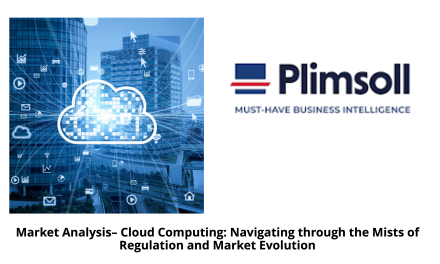How Credit Data Can be Accessed via CRMs for Complete Sales and Credit Integration
Accessing credit data on CRMs via API integrations can help companies and individuals gain insights into data and functionalities that they never before could. Not only does it allow everyone to access a new range of information, but with the ease-of-access and automation features, the benefits of APIs allow businesses to operate more efficiently. CRMs provide the perfect platform to hold a magnitude of data in one place.
APIs are extremely frequent in our day-to-day lives, social and professional, so remember, if you are unable to get something done, there is a good chance that someone has created an API that will help you.
Application Programming Interface, more commonly known as API, has continued to revolutionise technology and the means in which companies and individuals interact with data. In an era where technology is continually changing, evolving, and becoming more automated, more traditional and/or older means of technology either adapts or depletes.
APIs have been around for a few decades and continue to make our daily lives easier. For example, with cloud technology/cloud computing.
One of the most significant features of APIs is the fact that their functionalities are virtually unlimited. Recently, a focus has stemmed upon data-driven companies, data-driven decision making, and, overall, big data. In a business world that is so reliant upon data, a means of transferring that data has increased, which paves the way for more resilient APIs.
This article will address the example of credit data, how it can be accessed and integrated via Customer Relationship Management (CRM) software, drawing upon the crucial role of APIs.
Significance of CRMs
CRMs have become a norm in business today, with a focus on providing the best customer service with a data-first approach. This strategic software helps businesses automate storage organisation of client data, while, in turn, aids in finding potential customers using collated data.
CRM databases may contain contact details, lead sources, consumer interaction records, purchasing records, and lots more information that helps specify your types of customers and, therefore, potential clientele.
There is a myriad of CRMs that businesses can use, such as Salesforce, HubSpot, Zoho, the list can go on. Using Salesforce as an example, we must ask how API is used to access credit data via the Salesforce CRM? In addition, what is the added value of using a CRM with additional credit scoring applications and add-ons.
API – The Mirror Effect
API is, essentially, the channel of communication between two systems. It is an intermediary to serve one system with data from another system, and with this exchange, all functionality is mirrored to the receiving system.
For example, company X has an API and channels the communication with their system to a CRM such as Salesforce. All the functionalities that company X’s API holds will be embedded into the Salesforce software.
Therefore, if company X is a business intelligence company with lots of data on companies and individuals, then their API that can offer all of their services, such as KYC (Know Your Customer) information, company profiles, and credit reports will be mirrored onto the receiving software. This, in turn, adds value to the receiving software. In our example, Salesforce this CRM would gain new functionalities due to the API data exchange.
User Perspective
Continuing with our credit data example, how can the everyday user access company X’s API functionalities. Luckily, the everyday user doesn’t have to deal with all the technicalities of the API and the exchange from one system to another.
These APIs are tidied up by the CRM and configured in a way where users will only have to install a plugin or an app that automatically connects users to the original destination of the API exchange, without the need to worry about any major technicalities or the transition of APIs.
It’s a relatively simple process, like downloading an app, though some minor customisation may be required depending on the user.
Benefits of API Integration
There is no doubt that APIs and CRMs are the present and future of conducting efficient and effective business, so what are the benefits of integrating credit data to a CRM via API?
One Stop Shop
It doesn’t matter what your company does or what the CRM can do, you will gain complete access to another company’s functionality via their API. In the case of our business intelligence company, company X, you will be able to perform KYC and credit checks as if you were using their system or their website directly, but it would be through a CRM, such as Salesforce in our example.
The benefit of this is that you can have access to many different APIs from other companies (for example credit reference agencies) on the same CRM, to have all your data and access to it, in one place. Additionally, with multiple user access, you can have many people in different global locations simultaneously accessing all of this data and all of the functions offered via API on the CRM.
Automation
Using functionality from an API is completely automated and all the technical work is hidden within the API. APIs are used day-to-day by most people without even knowing. For example, when you use social media ‘share’ buttons on a blog page, it connects an article straight to a social media page to share, this is using an API to make that exchange.
Here the functionality is allowing someone to share an article from a website to a social media platform. In the case of our business intelligence company, if you wanted to perform a credit analysis or obtain a credit report on a specific company, instead of going onto a credit reference agency’s website, or sending them an email, or conducting the research in-house, using company X’s add-on, this can be done automatically within the CRM.
Security
Whether you are the one offering the API integration with the CRM or the user of the API, data security is a vital component. APIs can be secured in a variety of ways, one of which is tokenisation. Companies can ensure trusted identities and control access to services that the users have by using tokens that are assigned to client identities.
The API recognises the tokens, therefore, when a client uses the API functionality, they are viewed as trusted. Tokens are assigned when a user registers and passes KYC procedures. Additionally, users may use other functions of the API using their unique tokens, but for a period of time, for example, 1 hour. This is just one of a variety of security protocols that APIs hold.
Faster Client On-boarding
We all know that Sales and Finance departments are traditionally not always the best of friends. However, using a CRM application or add-on to source data and find new potential clients, conduct KYC checks and order credit reports – even due diligence investigations – means that Sales, Marketing, Credit, Finance and even those often unwelcome Compliance guys can all benefit from the initial software investment.
An added benefit is the seamless on-boarding of new clients through a single platform. Sales and Marketing can quickly find clients, Compliance can quickly vet them, Finance can quickly approve them and even Legal will be happier to approve them – all via the same CRM platform.
Credit Data Integration
Accessing credit data on CRMs via API integrations can help companies and individuals gain insights into data and functionalities that they never before could. Not only does it allow everyone to access a new range of information, but with the ease-of-access and automation features, the benefits of APIs allow businesses to operate more efficiently. CRMs provide the perfect platform to hold a magnitude of data in one place.
 APIs are extremely frequent in our day-to-day lives, social and professional, so remember, if you are unable to get something done, there is a good chance that someone has created an API that will help you.
APIs are extremely frequent in our day-to-day lives, social and professional, so remember, if you are unable to get something done, there is a good chance that someone has created an API that will help you.
For more information on how we can help with API integration, give us a call today on +357 25 346630 or email info@cedar-rose.com
Source: Cedar Rose Press Release


























